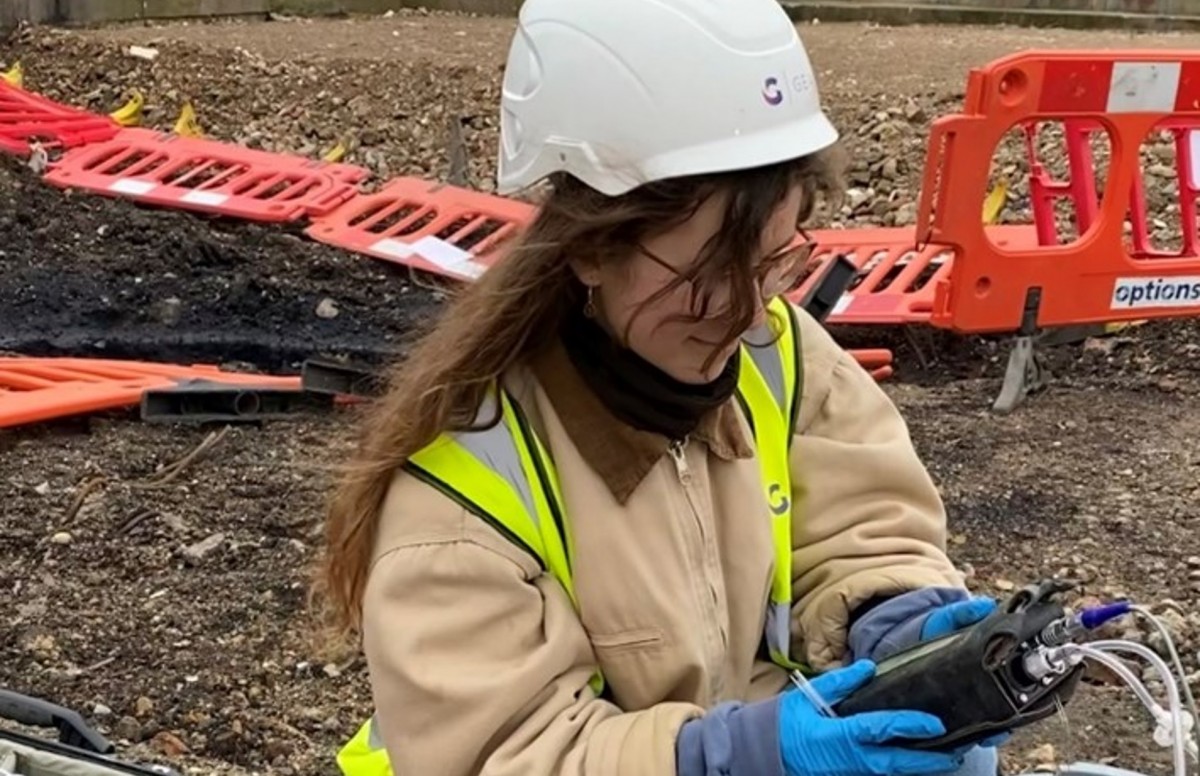Geotheta Things To Know Before You Get This
Geotheta Things To Know Before You Get This
Blog Article
Unknown Facts About Geotheta
Table of ContentsSome Known Questions About Geotheta.The Geotheta StatementsUnknown Facts About GeothetaWhat Does Geotheta Mean?Geotheta for Dummies

They perform site examinations, accumulate examples, carry out research laboratory tests, and assess data to review the viability of the ground for building jobs - Consulting Engineer. Based upon their searchings for, geotechnical engineers provide recommendations for structure layout, incline security, maintaining frameworks, and mitigation of geotechnical risks. They team up with various other professionals, such as designers, architectural designers, and building groups, to guarantee that geotechnical factors to consider are incorporated into the general project layout and application
By analyzing the behavior and homes of soil and rock, they can recognize prospective geotechnical threats such as landslides, dirt negotiation, or incline instability. Their experience aids avoid failings or accidents that might endanger lives and residential or commercial property. Here are some in-depth tasks and obligations of a geotechnical engineer: Website Examination: Geotechnical designers conduct site investigations to gather information on subsurface problems.
They interpret the data to understand the residential properties and actions of the dirt and rock, including their stamina, leaks in the structure, compaction characteristics, and groundwater problems. Geotechnical Evaluation and Design: Geotechnical engineers examine the information accumulated throughout website examinations to assess the stability and viability of the site for construction tasks. They do geotechnical calculations and modeling to evaluate elements such as birthing capacity, settlement, slope stability, lateral planet stress, and groundwater flow.
Some Of Geotheta
Foundation Layout: Geotechnical engineers play a crucial duty in creating structures that can safely support the designated structure. They evaluate the soil conditions and tons requirements to determine the ideal structure type, such as superficial foundations (e.g., footings), deep foundations (e.g (https://hub.docker.com/u/geotheta)., heaps), or specialized techniques like dirt renovation. They consider factors such as settlement limitations, birthing ability, and soil-structure interaction to establish optimal structure designs
They examine building plans, screen site activities, and carry out field examinations to validate that the design recommendations are complied with. If unforeseen geotechnical problems arise, they assess the situation and offer suggestions for removal or adjustments to the layout. Danger Evaluation and Mitigation: Geotechnical designers assess geotechnical risks and risks connected with the job site, such as landslides, liquefaction, or soil disintegration.

Partnership and Interaction: Geotechnical designers work carefully with other professionals associated with a project, such as architects, architectural engineers, and construction teams. Reliable interaction and cooperation are vital to integrate geotechnical factors to consider into the total project style and building and construction process. Geotechnical designers provide technological knowledge, answer questions, and make certain that geotechnical demands are met.
Some Known Facts About Geotheta.
Here are some sorts of geotechnical engineers: Foundation Engineer: Foundation engineers specialize in developing and analyzing structures for structures. They evaluate the soil problems, load requirements, and website qualities to identify the most appropriate foundation kind and design, such as shallow structures, deep foundations, or specialized methods like heap foundations.
They review the variables influencing slope stability, such as dirt residential or commercial properties, groundwater conditions, and slope geometry, and create techniques to avoid incline failings and alleviate risks. Quake Designer: Quake engineers specialize in assessing and creating structures Visit Website to withstand seismic forces. They assess the seismic hazard of a site, review soil liquefaction capacity, and establish seismic layout criteria to ensure the safety and strength of frameworks during earthquakes.
They perform area testing, gather samples, and examine the collected data to characterize the soil buildings, geologic formations, and groundwater conditions at a website. Geotechnical Instrumentation Engineer: Geotechnical instrumentation designers concentrate on monitoring and determining the actions of soil, rock, and frameworks. They install and keep instrumentation systems that keep an eye on factors such as dirt settlement, groundwater levels, slope motions, and structural displacements to examine performance and provide early warnings of possible concerns.
Geotheta Things To Know Before You Buy
They conduct examinations such as triaxial examinations, debt consolidation examinations, straight shear tests, and leaks in the structure examinations to collect information for geotechnical evaluation and design. Geosynthetics Engineer: Geosynthetics designers specialize in the design and application of geosynthetic products, such as geotextiles, geogrids, and geomembranes. They utilize these materials to boost dirt security, reinforce slopes, provide water drainage remedies, and control disintegration.
They often tend to be investigatory individuals, which indicates they're intellectual, introspective, and curious. They are interested, methodical, sensible, analytical, and logical. Some of them are also social, suggesting they're kind, charitable, cooperative, person, caring, practical, empathetic, tactful, and friendly - Tailings Engineer.
In the workplace setting, geotechnical designers make use of specialized software application tools to perform computations, create designs, and analyze information. They prepare reports, review project specifications, communicate with clients and employee, and coordinate job activities. The workplace setting offers a conducive setting for study, evaluation, and collaboration with other specialists entailed in the project.
Everything about Geotheta
They regularly go to task websites to perform website investigations, assess geotechnical conditions, and gather information for evaluation. These visits involve taking a trip to different places, often in remote or challenging terrains. Geotechnical designers may execute dirt sampling, conduct tests, and monitor building tasks to make sure that the geotechnical facets of the job are being implemented properly.
Geotechnical designers likewise function in specialized geotechnical laboratories. Geotechnical research laboratory designers work thoroughly in these environments, taking care of testing equipment, operating tools, and tape-recording data.
Report this page